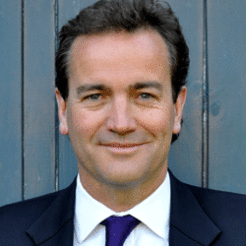Nick Hurd is confident that the Treasury will come to a reconciliation with charities over the tax relief cap issue, but has backed the fundamental aim of the cap, to limit tax avoidance.
The minister for civil society indicated that he was sympathetic to the concerns raised by charities and philanthropists about imposing a tax relief cap on donations, but said the primary goal of his government is to increase participation in giving across all of society. The cap was introduced in March Budget and would mean that philanthropists may only claim tax relief on gifts up to 25 per cent of their income or £50,000, whichever is greater.
“It is a serious issue,” Hurd told journalists in his Whitehall office this morning. “The concerns of the sector have been expressed very strongly.”
His discussion of the issue this morning would indicate that charities should not expect to hear any announcements on tax relief reform at today’s Giving Summit.
He said that Treasury has indicated a willingness to be flexible on the issue, and that Cabinet Office is involved in working to move the issue forward, adding the department with the purse strings are “receiving no shortage of advice”.
“I don’t think [Treasury] want to rush into a knee-jerk reaction, but they don’t want this to drag on forever,” he said.
“Where it’ll end, I’m not sure, but there is a determination to get this right.”
But, he said, “I think people, in their heart-of-hearts, agree that the fundamental principle that George [Osborne] is advocating is very hard to argue against.
“The whole agenda of increasing giving is much, much broader than the tax affairs of a small group of people.”
Hurd confirmed that he had not been consulted or given prior warning about the inclusion of charitable donations in the tax relief cap included in March’s Budget, but said this was not uncommon. “I wouldn’t be the first minister to not know what’s in the Budget,” he said.
The minister acknowledged that there is “bridge-building” to do between government and philanthropists and that drawing a link between tax efficient philanthropy and dodgy charities and tax dodging was ill-conceived.
“I recognise some people feel bruised,” he said.
“I certainly regret that the discussion wandered away from basic principles,” he added. “Everyone should pay a fair amount of tax. That’s the fundamental debate. I think it’s gone back to that now.”
Asked about estimates about the cost of the tax relief cap, Hurd said: “There is very little hard evidence underlying this discussion at the moment.”
New giving paper due
Hurd revealed that Cabinet Office will be releasing a further paper on giving on 23 May, the anniversary of the release of last year’s Giving White Paper. The paper will draw on what emerges from the Giving Summit today, and will reflect on the progress of the government’s giving agenda.
The paper will continue on the theme to make it easier and more compelling to give, and Hurd added, “There’ll be announcements for sure.”
Giving Summit delay
Asked by civilsociety.co.uk why the Giving Summit was delayed from its original timeframe of being held last autumn, Hurd said, “We changed our mind”.
The minister claimed that Cabinet Office decided to hold the event closer to the first anniversary of the release of the White Paper. “It just slipped,” he said.
Payroll giving progress slow
The Giving White Paper had also promised that the Giving Summit would launch a year-long campaign to promote payroll giving, but today’s summit will do no such thing.
“The wheels are turning on payroll giving, perhaps a little slower than I’d like,” he said. “Part of the reason why is that the process and infrastructure is cumbersome, slow and unexciting.”
Payroll giving agencies have recently submitted ideas for reforming payroll giving to Hurd’s office, which are now being reviewed.









